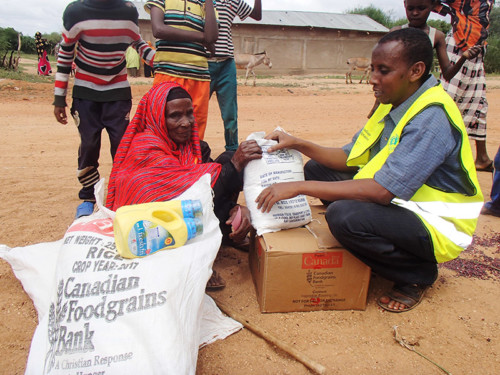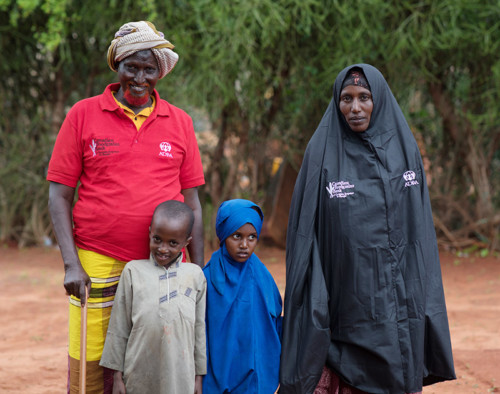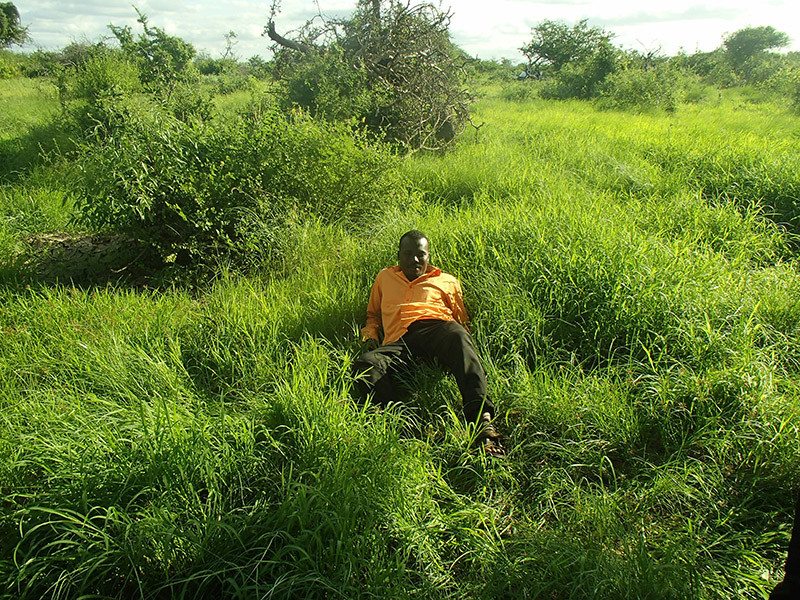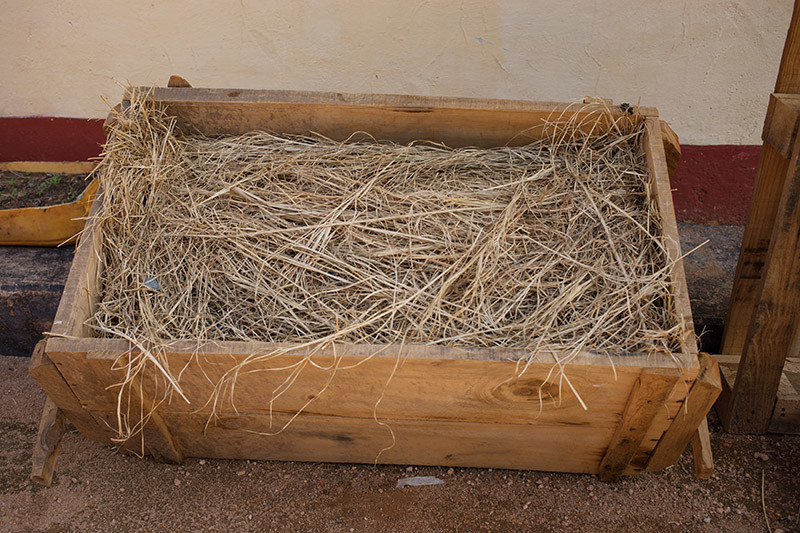Providing Help in A Dry Land
Adan is a respected elder in his community. He moved to the Mandera West region of Northern Kenya when he was a young man and helped start a settlement that has now become Takaba. Adan had grown up in a culture of nomadic pastoralists who relied on raising livestock for a living. Camels, sheep, goats and cattle were a very big part of his life. Even as they started to settle, build homes and a community, Adan and most of his friends and neighbors continued to raise livestock. The main problem was that rain in this part of Kenya is very unpredictable. Some years they would get enough rain for their herds to find enough pasture and then they would face long periods of devastating drought.
To provide some security through the long dry months, Adan and his neighbors, dug an earth pan, so that their animals would have a constant source of water. Unfortunately, the drought that hit this whole region of Africa in 2011 proved to be too severe, and the community lost most of their animals. In Adan’s culture, the loss of animals means much more than just a loss of income, it represents the loss of a way of life, including the ability to feed your family.


The people of Takaba were in a food crisis when ADRA Kenya arrived with emergency food supplies. At first, some of the elders were hesitant to accept the food because they were afraid that ADRA would then put pressure on them to become Christians. But with the need so great, they cautiously accepted the food.
As the initial crisis subsided, and the relationship between ADRA and the community strengthened, it was decided to start a project in the area that would help build food security and develop greater resiliency for the next drought. In partnership with the Canadian Foodgrains Bank, the Government of Canada, and ADRA Canada, ADRA Kenya began to implement a project that introduced many new practices that would help the people of this region get through the long periods of no rain.
ADRA provided the community with new varieties of drought-resistant grass seeds. With class training in agricultural instruction, they showed them new methods of preserving fodder so they would have plenty of reserves during the dry season. They introduced the concept of kitchen gardens and showed them how to grow a good variety of fruits and vegetables.
In an interview with Adan, here is what he had to say:
“We never knew anything about vegetables before. Now everyone is using vegetables with every meal. ADRA has not only given us food security, it has really raised our whole standard of living. Before ADRA came we would lose many of our animals during the droughts. Our children were malnourished. Life was difficult. Now our children are strong and healthy, our animals are getting enough to eat, and our women are starting small businesses with the training that they have received from ADRA. The savings and loans program that ADRA started here has been so successful that one of the banks from Nairobi is thinking of opening up a branch here in our town!
I would like to thank the people of Canada. ADRA, the Canadian Foodgrains Bank, the government of Canada, the farmers, the people. You are all very far away from us, but you have helped us. We are very thankful for all that you have done. Please continue with your endeavour. Please assist whenever you can. Let us be friends. Let us be human. Let us make this a good world for all of us to live.”


Let's make a difference together!
Related News and Stories
- News Releases
- News Releases
- News Releases
- News Releases, Stories